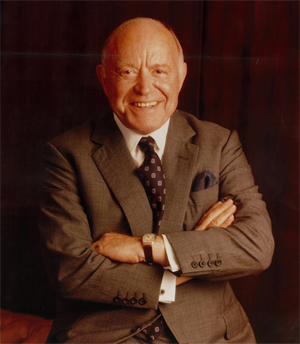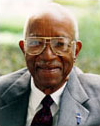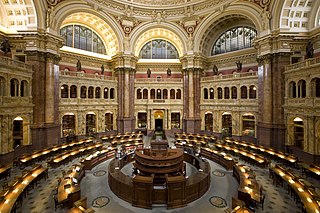
John Werner Kluge was a German-American entrepreneur who became a television industry mogul in the United States. At one time he was the richest person in the U.S.

The British Academy for the Promotion of Historical, Philosophical and Philological Studies is the United Kingdom's national academy for the humanities and the social sciences. It was established in 1902 and received its royal charter in the same year. It is now a fellowship of more than 1,000 leading scholars spanning all disciplines across the humanities and social sciences and a funding body for research projects across the United Kingdom. The academy is a self-governing and independent registered charity, based at 10–11 Carlton House Terrace in London.
William Julius Wilson is an American sociologist, a professor at Harvard University, and an author of works on urban sociology, race, and class issues. Laureate of the National Medal of Science, he served as the 80th President of the American Sociological Association, was a member of numerous national boards and commissions. He identified the importance of neighborhood effects and demonstrated how limited employment opportunities and weakened institutional resources exacerbated poverty within American inner-city neighborhoods.

The Royal Society of Canada, also known as the Academies of Arts, Humanities, and Sciences of Canada, is the senior national, bilingual council of distinguished Canadian scholars, humanists, scientists, and artists. The primary objective of the RSC is to promote learning and research in the arts, the humanities, and the sciences. The RSC is Canada's national academy and exists to promote Canadian research and scholarly accomplishment in both official languages; to recognize academic and artistic excellence; and to advise governments, non-governmental organizations, and Canadians on matters of public interest.

Baruch Samuel Blumberg, known as Barry Blumberg, was an American physician, geneticist, and co-recipient of the 1976 Nobel Prize in Physiology or Medicine, for his work on the hepatitis B virus while an investigator at the NIH and at the Fox Chase Cancer Center. He was president of the American Philosophical Society from 2005 until his death.

Rita Frances Dove is an American poet and essayist. From 1993 to 1995, she served as Poet Laureate Consultant in Poetry to the Library of Congress. She is the first African American to have been appointed since the position was created by an act of Congress in 1986 from the previous "consultant in poetry" position (1937–86). Dove also received an appointment as "special consultant in poetry" for the Library of Congress's bicentennial year from 1999 to 2000. Dove is the second African American to receive the Pulitzer Prize for Poetry, in 1987, and she served as the Poet Laureate of Virginia from 2004 to 2006. Since 1989, she has been teaching at the University of Virginia in Charlottesville, where she held the chair of Commonwealth Professor of English from 1993 to 2020; as of 2020, she holds the chair of Henry Hoyns Professor of Creative Writing.

James Hadley Billington was an American academic and author who taught history at Harvard and Princeton before serving for 42 years as CEO of four federal cultural institutions. He served as the 13th Librarian of Congress after being nominated by President Ronald Reagan in 1987, and his appointment was approved unanimously by the U.S. Senate. He retired as Librarian on September 30, 2015.

Leszek Kołakowski was a Polish philosopher and historian of ideas. He is best known for his critical analyses of Marxist thought, such as in his three-volume history of Marxist philosophy Main Currents of Marxism (1976). In his later work, Kołakowski increasingly focused on religious questions. In his 1986 Jefferson Lecture, he asserted that "we learn history not in order to know how to behave or how to succeed, but to know who we are".
The John W. Kluge Center at the Library of Congress invites and welcomes scholars to the Library of Congress to conduct research and interact with policymakers and the public. It also manages the Kluge Scholars' Council and administers the Kluge Prize at the Library of Congress.
The Kluge Scholars Council is a body of distinguished scholars, convened by the Librarian of Congress to advise on matters related to scholarship at the Library, with special attention to the John W. Kluge Center and the Kluge Prize. Through discussion and reflection, the Council assists in implementing an American tradition linking the activities of thinkers and doers, those who are engaged in the world of ideas with those engaged in the world of affairs.
The American Council of Learned Societies (ACLS) is a private, nonprofit federation of 75 scholarly organizations in the humanities and related social sciences founded in 1919. It is best known for its fellowship competitions which provide a range of opportunities for scholars in the humanities and related social sciences at all career stages, from graduate students to distinguished professors to independent scholars, working with a number of disciplines and methodologies in the U.S. and abroad.

John Hope Franklin was an American historian of the United States and former president of Phi Beta Kappa, the Organization of American Historians, the American Historical Association, and the Southern Historical Association. Franklin is best known for his work From Slavery to Freedom, first published in 1947, and continually updated. More than three million copies have been sold. In 1995, he was awarded the Presidential Medal of Freedom, the nation's highest civilian honor.
The Francqui Prize is a prestigious Belgian scholarly and scientific prize named after Émile Francqui. Normally annually since 1933, the Francqui Foundation awards it in recognition of the achievements of a scholar or scientist, who at the start of the year still had to be under 50. It currently represents a sum of 250,000 Euros and is awarded in the following three-year rotation of subjects: exact sciences, social sciences or humanities, and biological or medical sciences.

The Library of Congress (LOC) is a research library in Washington, D.C. that serves as the library and research service of the U.S. Congress and the de facto national library of the United States. Founded in 1800, it is the United States' oldest federal cultural institution. The library is housed in three elaborate buildings on Capitol Hill, with a conservation center in Culpeper, Virginia. The library's functions are overseen by the Librarian of Congress, and its buildings are maintained by the Architect of the Capitol. The Library of Congress is one of the largest libraries in the world. Its collections contain approximately 173 million items, and it has more than 3,000 employees. Its collections are "universal, not limited by subject, format, or national boundary, and include research materials from all parts of the world and in more than 470 languages".

Danielle Susan Allen is an American classicist and political scientist. She is the James Bryant Conant University Professor at Harvard University. She is also the former Director of the Edmond & Lily Safra Center for Ethics at Harvard University.
Pauline Yu is an American scholar of Chinese literature and culture noted for her contributions to the study of classical Chinese poetry and comparative literature. She is also known for her research and advocacy on issues in the humanities.
The British Academy presents 18 awards and medals to recognise achievement in the humanities and social sciences.
Prosser Gifford was a historian, author, and academic administrator. He held various positions at notable academic institutions including the position of first Dean of Faculty at Amherst College. He is probably best known for his work as Director of Scholarly Programs at the Library of Congress. He contributed numerous works to the fields of African History and U.S. Foreign Policy.









